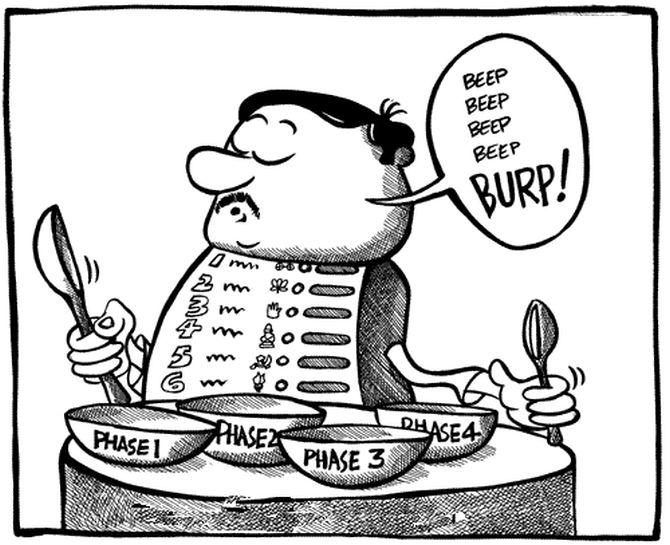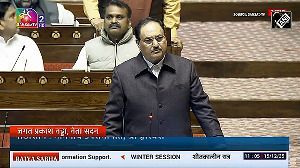Now they are reinventing their strategies to stay afloat, as they see no sign of recovery for at least six months.

India’s top restaurateurs have seen their business models being crushed by the ongoing slowdown, forcing them to lay off employees, cut salaries, and shelve launch plans.
Now they are reinventing their strategies to stay afloat, as they see no sign of recovery for at least six months.
Entrepreneur Zorawar Kalra’s Massive Restaurants runs 20 self-owned outlets, including premium ones such as Masala Library and Bowtie.
Backed by Gaja Capital and Everstone Group, Kalra says the plan is to consolidate and survive, and that his eateries don’t have the bandwidth to deliver or do take-outs just yet.
“However, once the lockdown ends, we will start a hub-and-spoke model that will enable cross-delivery of cuisines across restaurants.
"We are also looking at cloud kitchen concepts, though nothing can replace walk-in business,” he says.
Kalra has planned four new restaurants across major metros, which are on hold.
Fine-dining restaurant Indian Accent, which has received minority investments from Mahindra Group chairman Anand Mahindra, has also shut three locations, and management has volunteered a pay cut, said a spokesperson.
There will be resets, and it will take at least six months before 80 per cent stability returns to dining, said Sameer Sain, co-founder and CEO of Everstone Group.
“It will not be the best restaurants that survive, but the best capitalised ones.”
There will be aggressive cost cutting and adaptation, and most will not make it.
Sain says restaurants in five-star hotels will have an advantage because of the existent hygiene and quality standards.
“High-end and QSR (quick-service restaurants) outlets will win the battle for survival because of the standards already in place.”
Ritu Dalmia, co-founder of Riga Food (backed by Max Group chairman Analjit Singh), who runs premium eateries Diva and Cittamani, is on the same page.
However, high-end restaurants indicate high costs.
“Food cost is at least 35 per cent of the outgoing, given that ingredients include organic vegetables, truffles, imported cheese, and meat - which are all perishable,” she said.
“The other 65 per cent comprises rentals and staff salaries, all of which are expensive, given zero revenue.”
Plans to open a cafe version of Diva in Gurgaon have hit the skids.
“Hopefully the higher standards of hygiene, along with brand trust and loyalty, will help high-end restaurants.”
Dalmia added that she had implemented pay cuts, including for herself, and some lay-offs in her 200-staff team would happen.
“I will start deliveries next week, but the quantity of orders don’t justify operating costs.”
Similarly, Aditi Dugar - who runs high-end diner Masque in Mumbai - pivoted to deliveries in April.
“We only asked staff with their own vehicles to come,” she said, adding: “We had pre-packaged course meals for takeaways, based on customised menus, which include pre-mixes for drinks.”
Dugar knows that won’t be enough, so she is also running online cooking classes, as she knows the comeback is some time away.
Sarita Pereira, chef and founder of restaurant LoveFools, said she was recently in the process of shifting to a large bungalow in Bandra, which had been designed in a manner that social distancing would be rendered easy.
“It’s a big house with several rooms, an attic and outdoor area that will make six-feet-distance quite viable,” she said.
Angel investor-backed Caperberry, a European restaurant that seats just 28 people, may have to shut down, says chef and promoter Abhijit Saha.
“Being in a mall, we are not allowed to do deliveries or takeaways,” he said.
“There’s a chance we may have to completely shut down.”
Saha’s staff costs are unsustainable and his investors have indicated they may pull the plug.
Saha’s fate could be the same as others in the trade.










